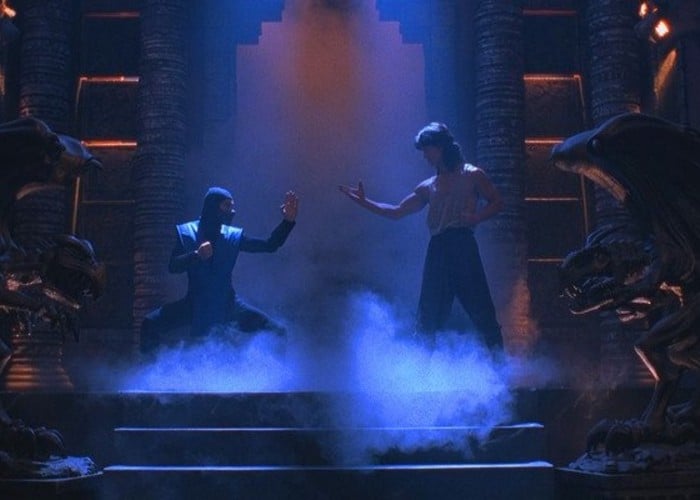
The upcoming Mortal Kombat reboot is shaping up to be an exciting movie. With James Wan handling production duties and a cast featuring Lewis Tan and Joe Taslim — among other talented actors and martial artists — the film is stacked with people who boast strong action movie pedigree. If the new Mortal Kombat lives up to its potential, it will be one of the better video game movies out there when it finally hits our screens in 2021.
At the same time, let’s not forget that the original Mortal Kombat (1995) is an awesome cinematic interpretation of the popular fighting game series. While the dated special effects and whitewashing of Raiden — the Chinese God of Thunder — makes the movie seem like a relic from another time in 2019, it’s still a rare case of a video game movie that boasts the spirit of the source material while admirably reinterpreting it for cinematic purposes.
Prior to Mortal Kombat’s release in 1995, Hollywood had a history of making movies based on video games without actually understanding the games themselves. For example, the Super Mario Bros. games follow two plumber brothers’ adventures in the magical Mushroom Kingdom. The movie, meanwhile, adopts a darker tone and sends the title characters to a cyberpunk dinosaur city. Elsewhere, Street Fighter ignores the tournament premise of the games in favor of a campy action movie. You get the idea.
Mortal Kombat doesn’t make the same mistakes as its predecessors, though. The filmmakers wanted to appease diehard fans and general audiences alike. After an early cut of the movie was criticized for not including enough signature elements of the games, director Paul W.S. Anderson and his colleagues turned to the fans for feedback and actually took their advice.
The fans all demanded one thing be added: more action. Given that the early games are beat ‘em ups that revolve around an otherworldly martial arts tournament, making sure there were plenty of action set-pieces in the film was essential. After the poor test screenings, the filmmaking team shot more fight scenes featuring popular characters, including Johnny Cage’s battle with Scorpion and Liu Kang’s fight with Reptile.
Of course, it also didn’t hurt that the film had some talented folks at its disposal to bring the action to life. Robin Shou, who plays Lui Kang, choreographed the fight sequences and brought an authentic martial arts feel to the movie. Shou was already an experienced performer in the genre, having worked as both an actor and stuntman in Hong Kong flicks beforehand. The film benefits from his expertise, as the fight sequences are fun throughout the movie.
The only thing lacking in the action department is bloodletting. At the time, the violence in the games — which included hearts being ripped from chests and other fatalities — caused a moral panic among politicians, the media, and concerned parents. The outrage Mortal Kombat incited ultimately led to video games receiving appropriate age ratings, meaning that they were no longer as easily accessible to children. The movie, meanwhile, was geared towards a PG-13 audience, so it’s a much tamer affair compared to its console counterparts.
Fortunately, the movie still contains the same premise, energy, and general vibe of the games. Even without the gore, the film offers the same thrills and experience in many ways. The fights are frequent and carried out by outlandish characters, and the story revolves around a tournament where each fight increases in difficulty and throws more powerful bad guys into the mix.
One thing the movie deserves more credit for is adding substance to the characters and the story. The early Mortal Kombat games only offer some basic information about the mythology, which they reveal to players through text at the beginning of the games and accompanying instruction manuals. There were also some comic book tie-ins and novelizations, but general gamers and moviegoers weren’t familiar with those.
The movie adheres to these various scraps of information and expands upon them to create a journey worth investing in. All of our heroes have distinct personalities and individual reasons for fighting, which also brings them together for a higher purpose. Liu and Sonya Blade are fighting for revenge, while Johnny battles for respect as a fighter. Their individual pursuits expose their flaws, but throughout the movie we see each character evolve to overcome them. As such, these heroes are worth rooting for.
Mortal Kombat was never going to win any Oscars. It’s an unabashed popcorn movie that embraces the inherent ridiculousness of the games while respecting the vision of their creators. If anything, the film realizes their ideas on a grander scale and offers a more fully-formed representation of the Mortal Kombat phenomenon as a result.
Related Topics: Mortal Kombat

